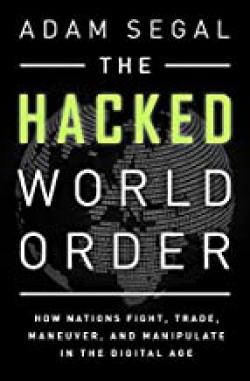By John Pickard
The Intelligence and Security Committee of the House of Commons produced a report recently which detailed Russian state interference in electoral processes in Britain. The Johnson Government is now sitting on that report and refusing to publish it, because of the damaging revelations linking the Tory Party to Russian donors closely associated with Russian President Putin.
We shouldn’t for one minute suggest that the Russians are unique in their endeavours to get involved in electoral processes. All the western powers use what espionage and political mechanisms they can muster to ‘interfere’ in elections in other countries. However, in the context of this report, Putin’s motives and the manner of his carrying out Russian foreign policy through elections overseas is something worth looking at.
An investigation by OpenDemocracy has found that wealthy Russian donors, directly or through intermediaries, have been bank-rolling the Tory Party for years. No wonder Johnson wants to suppress the parliamentary report. The biggest donor has been one Lubov Chernukhin, who gave £450,000 to the Tories last year. Another, former arms-dealer Alexander Termenko, has given nearly £1.2m to the Tories in the past seven years and has owned up to being involved in the hard Brexiteers’ plot to replace Theresa May earlier this year.
Tories’ £3.5m from Russian donors
Another prominent recent Tory donor, according to OpenDemocracy, is the Russian billionaire financier Lev Mikheev. “The Moscow-born investment banker, who has donated £212,000 to the Tories since 2010, was described by the Daily Mail in 2014 as a ‘billionaire financier with offices in London and next door to the Kremlin in the Russian capital’. Records show that former Tory MP Rory Stewart received £10,000 from Mikheev for his unsuccessful Conservative leadership bid”
Altogether, according to OpenDemocracy, the Conservatives have received more than £3.5m from Russian donors in the last nine years. Although the donations tailed off for a while, after the poisoning of Sergei Skripal in Salisbury last year, they have picked up again. Between November 2018 and October 2019, the Tories received at least £489,850 from Russian donors, compared to less than £350,000 in the previous year. In May, the Conservatives also received almost £20,000 from a lobbying company closely connected to both Russian interests and the upper echelons of the Tory party.
The question arises, of course, as to why the Russians are bank-rolling Brexit campaigns and the Tory Party. Why, if it comes to that, did they appear to campaign for Donald Trump in 2016?
Cyber-warfare is up and running
In Adam Segal’s book, The Hacked World Order, the author outlines the extent to which the big powers, notably China, the USA and Russia, (but there are smaller players as well) have begun to use cyber technology in an effort to establish an offensive capability in the sphere of social media, hacking and electronic warfare.
This is not the place to go into detail about the way that the great powers are tooling up and sparring with each other in the field of cybernetics. Suffice to say that the biggest players have military-cyber organisations that have tens of thousands of trained personnel, as well as unofficial ‘proxies’ at their command.
In the particular case of Russia, Segal points out, 2011 saw the first-ever public document that explained the basis of Russia’s cyber capability and purpose, while hinting at its modus operandi. The Russian military’s role in cyberspace, he explains, “describes information warfare as a confrontation involving attacks that damage ‘information systems, processes and resources’ undermine ‘the political, economic and social system’ and create ‘massive brainwashing of the population for destabilising the society and the state.’”
What Segal is pointing to here is the use of cyber technology to actively intervene in the political and electoral processes in other states. There is no other meaning that can be attached to the words, “undermine the political, economic and social system” and “destabilising the society and the state.”
One of the ways that political interference is managed is by the use of tens of thousands of “bots”: fake accounts, disguised as real ‘people’ making appropriate comments and statements on social media. Hundreds of thousands of social media posts can have an effect on how voters get ‘information’ (fake or not) and therefore on how they vote on the day. There are others, like Distributed Denial of Service attacks, destructive hacking and the theft of data.
Trump is a loose cannon on the deck of US politics
Put simply, it is in the interests of Putin and the Russian mafia-state to have political processes in the USA ‘disrupted’ by the election of a small-minded incompetent like Trump. What better way is there to disrupt the governance of your opponent’s (NATO) ship than have a loose cannon on its deck? Much the same applies to the promotion of the ‘Leave’ campaign and Russian support for Brexit. What better way to disrupt the European arm of NATO?
None of this is to deny that the political and economic factors that led to Trump’s election and the 2016 UK referendum result were overwhelmingly domestic in origin. But neither is there any point in denying that there are more opportunities than ever for cyber-based and covert intervention in election campaigns. It is certainly not in the interests of the working class for massive and covert propaganda machines, beyond public scrutiny and control, to be deployed in elections.
This week, the Labour Party has had two cyber attacks on its network systems. These were Distributed Denial of Service (DDoS) attacks. The Labour Party referred these to the national agency responsible for protection against cyber attacks, the National Cyber Security Centre. The Russians may not have been responsible, of course, but it is a sign of the future of electronic election sabotage. According to The Guardian (November 13), the means of generating a DDoS attack can be purchased cheaply, if you know where to go. “…a short-lived attack could be purchased for €5 (£4.30); a longer attack, aimed at knocking a website offline for an hour, was €90”. These are sums of money well within the budget of a state or a well-funded ultra right-wing organisation. ‘Electronic politics’ is becoming increasingly poisonous and it will be increasingly unreliable and suspect. It reinforces the idea that the labour movement can never replace face-to-face meetings, discussion and organisation.
November 14, 2019



